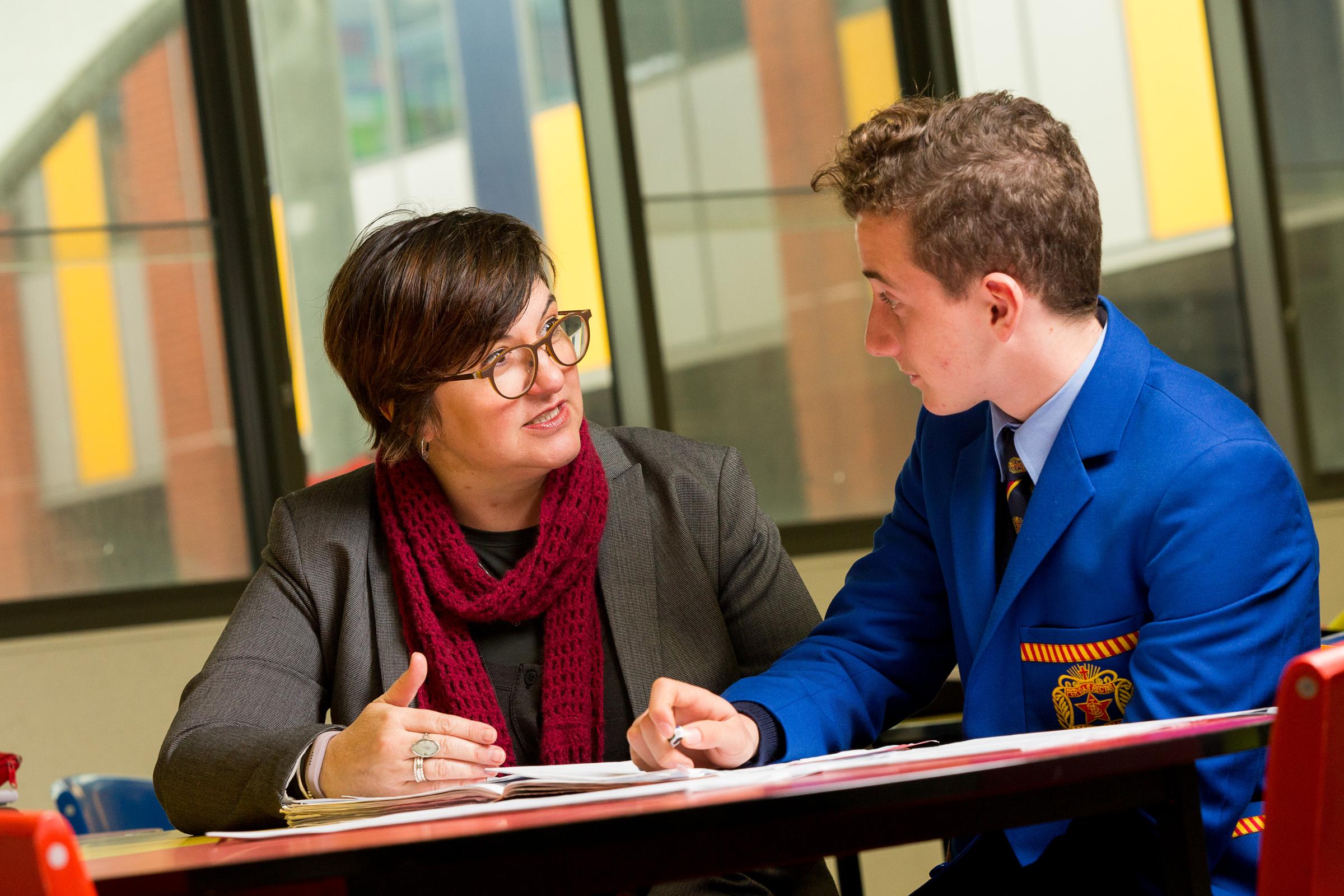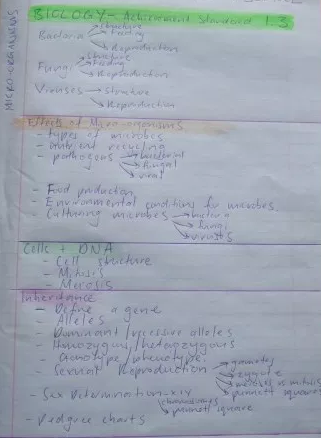Teaching & Learning

Year 9 and 10 Exams
Parents and carers of Year 9 and 10 students will have received information outlining the timetable and expectations for the exam period in June. At Year 9 and 10, exams are held for core subjects – Religious Education. English, Maths, Science and Geography or History. However, other subjects will also be finalising Semester 1 assessments. Students will need to be organised in the next few weeks, ensuring that they begin to develop appropriate study notes and use revision time wisely. A simple guide to writing study notes for exams can be found at the end of the newsletter.
Semester 2 Subjects
Semester 2 subjects will begin for all year levels on Tuesday June 11. Students will receive an emailed timetable during the first week of June. For students in Years 9 and 10 there will be a limited opportunity to change elective selections, and will be subject to availability and other timetabling constraints. Students who are beginning new electives should be prepared with the required equipment.
GAT – General Achievement Test
The annual VCE GAT is on Wednesday June 12. Due to the numbers of students sitting the GAT across years 11 and 12, this is a student free day. Teachers will be focussed on assessment and reporting. For more information about the GAT please see http://www.vcaa.vic.edu.au/Pages/vce/exams/gat/aboutgat.aspx
Subject Selections 2018 - Save the dates
Senior Pathways Evening Wed July 17 | An essential evening for parents and students entering Years 11 in 2020 |
Year 8 & 9 Subject Info Evening Wednesday July 24 | These sessions provide subject selection information for students entering Years 9 and 10 in 2020 |
Year 6 Testing Morning Saturday July 27 | For students who have been offered a Year 7 place at St Bede’s in 2020 |
Acceleration Policy Reminder
A reminder to students, parents and carers that current Year 9 students who wish to accelerate into a Unit 1 and 2 VCE subject in Year 10 require 80% or above in 3 of their 5 core subjects. Acceleration is not automatic even in these circumstances. The College reserves the right to refuse based on Year 11 demand, literacy concerns and/or behavioural concerns.
Why is writing study notes so important?
Students have tonnes and tonnes of information to take in during the lead up to exams; they’re not going to be able to retain or use this information unless they write a lot of it down.
The act of writing information down consolidates it in memory in a way that can’t be achieved by only reading. While there are many other methods that your son can employ while studying — study notes are a must.
The steps to writing study notes that really work
1. Study notes need to be written in your son’s own words.
Simply copying text straight from a book won’t achieve anything. Students shouldn’t write anything down unless they can speak about it to another person. This is why it helps to study with a partner, in small groups, or even chat about things at home.
2. Study notes work best when they’re written in an organized manner.
This means that notes should be written under headings and subheadings.
For example, one of the major topics in Year 10 Science is Biology. Study notes for this topic should be written under the heading ‘Biology’, and then under subheadings, such as Micro- organisms, Cells and DNA, Inheritance, and so on. See the image below:
Having organised study notes is really important for later on when students are reading over their study notes and wants to find something.
3. Notes are better if hand written in a dedicate exercise book.
This has the two purposes; first, the connection between writing and thinking is well established, secondly on a practical level, this saves the hassle of losing random bits of paper.
If they use one book per subject, then all their study for each subject is in one place and will be easy to find.
4. It doesn’t really matter whether students write their study notes out in full sentences, or in some form of short-hand, or a mixture of both.
What is important is that, however they write them, the notes make sense to the student. It might take a little bit of trial and error, but your son’s study notes should become personalised to them — they should have your son’s own personal style.
Writing study notes in their own way is going to ensure they retain the largest amount of information possible.
5. We highly recommend that students …
- Seek help from teachers prior to the exam if there are areas they have missed or are less confident in.
- Begin study notes now!
- Use the last week of classes to check understanding.
- Ask teachers for sample exam questions for practise.
- Don’t panic!

